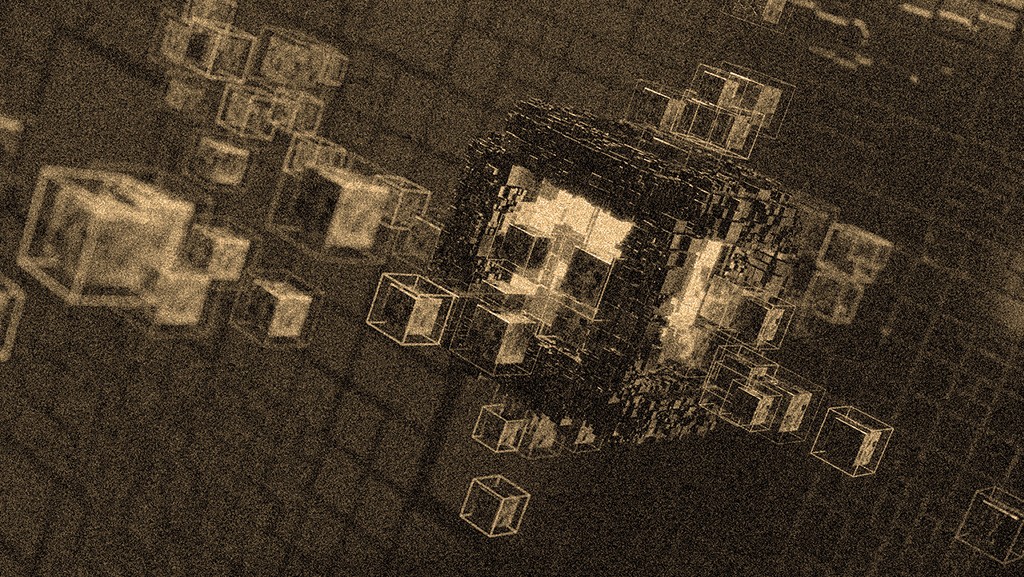The Synergy and Challenges of DeFi and AI
The fusion of decentralized finance (DeFi) and artificial intelligence (AI) represents a formidable convergence of disruptive technologies, holding immense promise for reshaping the financial landscape while ushering in enhanced transparency and decentralization.
The combined valuation of blockchain technology powering DeFi and the AI market reached $230.10 million in 2021, with projections indicating a staggering growth to exceed $980 million by 2030. This compelling data underscores the rapid advancement of these integrated technologies, poised to introduce heightened security, inclusivity, and self-sufficiency across the global financial spectrum.
This article delves into the reciprocal influence of DeFi and AI, the advantages derived from their amalgamation, the obstacles encountered, the associated risks, and the future vistas stemming from this dynamic synergy.
Understanding DeFi
DeFi encompasses financial services and applications constructed on blockchain networks, predominantly leveraging smart contracts – self-executing code-based agreements. The overarching aim of DeFi is to dismantle traditional financial system intermediaries, thereby facilitating open, permissionless access to financial services in a decentralized and democratized manner.
In the traditional financial realm, intermediaries like banks, exchanges, and lending institutions wield pivotal roles in transaction facilitation and fund management. In contrast, DeFi harnesses the decentralized attributes of blockchain technology to establish a trust-ensuring, transparent financial ecosystem characterized by secure, immutable transactions.
DeFi holds the potential to extend financial services to the global unbanked and underbanked populations, bereft of conventional banking access. Operating on blockchain networks, DeFi platforms extend accessibility to anyone with a smartphone, unlocking efficient financial avenues like decentralized lending, borrowing, trading, and yield farming.
The Essence of AI
AI emulates human intelligence by assimilating existing data and executing human-like cognitive tasks such as decision-making, pattern recognition, and problem-solving. Recent years have witnessed remarkable strides in AI development, with its potential to revolutionize diverse sectors such as healthcare, finance, transportation, cybersecurity, manufacturing, and entertainment.
To replicate human thought and learning processes, AI employs techniques such as machine learning, neural networks, automated decision-making, and the Internet of Things (IoT).
AI’s potential lies in automating repetitive functions, enhancing decision-making, bolstering efficiency, and stimulating innovation – affording humans the freedom to focus on intricate, creative tasks.
The Interplay of AI and DeFi
AI’s prowess in efficaciously processing vast data, discerning patterns, and forecasting intelligently can empower DeFi solutions to optimize their functioning, strengthen security protocols, and offer personalized user services.
From automated trading algorithms, cybersecurity, and risk assessment models to fraud detection systems and smart contract audits, AI’s applications in DeFi forge the path for novel financial products and services that are more accessible, efficient, and equitable.
AI’s potential extends to refining DeFi practices by aiding traders in executing strategies through AI-fueled trading bots and predictive analytics to identify market trends, thereby enabling optimal trade execution. Moreover, AI’s capacity to tailor personalized investment portfolios and strategies to individual financial objectives and risk appetites augments its role in portfolio management.

Opportunities Forging Ahead with AI-Infused DeFi
The fusion of DeFi and AI presents a constellation of exhilarating prospects, poised to metamorphose the decentralized finance landscape. Here are some ways AI can be integrated into DeFi to achieve optimal outcomes.
Credit Scoring and Risk Management
AI can swiftly furnish DeFi lending platforms with credit scores and risk assessments, enabling informed lending decisions. By analyzing historical data, monitoring market dynamics, and offering real-time risk alerts, AI can fortify DeFi platforms against risks like price volatility and smart contract vulnerabilities, empowering robust risk management strategies.Fraud Detection and Security
AI algorithms can bolster DeFi platforms by identifying patterns, detecting anomalies, and heightening security measures to thwart potential fraudulent activities and cyberattacks. This integration enhances user protection and deters unauthorized access, enhancing the overall security quotient of decentralized ecosystems.Data Analysis and Decision-Making
AI’s capacity to scrutinize extensive datasets for insights, pattern recognition, and data-driven decision- making contributes to a smarter DeFi landscape. AI-powered algorithms can predict market trends and anomalies, facilitating personalized investment strategies aligned with user’s financial aspirations.Smart Contract Automation
AI’s proficiency can streamline smart contract creation and execution within DeFi. By leveraging machine learning and natural language processing, AI simplifies the development of self-executing contracts, minimizing manual intervention, refining contract accuracy, streamlining operations, and ultimately enhancing efficiency.Regulatory Compliance
AI-powered solutions can assist DeFi platforms in navigating complex regulatory compliance landscapes. By automating compliance processes and fostering transparency, AI can aid adherence to Know Your Customer (KYC) norms, Anti-Money Laundering (AML) regulations, and other compliance standards.Decentralized Autonomous Organizations (DAOs)
DeFi and AI’s synergistic role extends to decentralized autonomous organizations (DAOs), self-governing entities on blockchain networks. Leveraging DeFi and AI can cultivate efficient, transparent, and intelligent decision-making mechanisms within DAOs.
Navigating Challenges in AI-Empowered DeFi
While the convergence of DeFi and AI unveils remarkable potential, it concurrently introduces challenges necessitating thoughtful consideration and resolution. Key concerns encompass data quality, privacy preservation, transparency, scalability, and regulatory alignment. Addressing these challenges is pivotal for harnessing the synergies between these two technologies, realizing their full potential, and upholding dependable, efficient performance.
Data Quality, Privacy, and Security
Striking a balance between AI-driven personalization and user data privacysecurity is crucial. DeFi’s data fragmentation, privacy constraints, and lack of standardized data formats present challenges for AI algorithms reliant on comprehensive data sets. Resolving data privacy concerns and safeguarding data integrity are paramount when intertwining AI with DeFi.
Adversarial Attacks
DeFi platforms may fall prey to adversarial attacks, wherein malicious actors manipulate AI models for unfair advantage. Robust security measures and vulnerability assessments are instrumental in curbing adversarial risks, averting financial losses, and safeguarding DeFi protocols.
Prudent Reliance on AI
While AI augments DeFi, excessive reliance can breed complacency, ethical quandaries, and diminished human oversight. Recognizing AI’s limitations and preserving a balance between AI-driven automation and human intervention is essential to avert unpredictable outcomes.
Scalability and Computational Demands
AI algorithms, especially those rooted in deep learning, necessitate substantial computational resources. Scaling AI integration in DeFi amid real-time processing requirements and large data volumes presents scalability hurdles that must be addressed for optimal efficiency.
Regulatory and Compliance Dynamics
The alliance of DeFi and AI introduces regulatory complexities, calling for adaptable frameworks to address emerging challenges and risks. Balancing innovation with regulatory compliance is critical for fostering the expansion of this evolving domain.
The Road Ahead for AI in DeFi
The fusion of DeFi and AI stands as a disruptive hallmark poised to democratize finance, enhance financial inclusivity, and engender transparency within the financial system. While AI in DeFi gains traction, mindful consideration of realistic expectations and proactive management of significant challenges, including ethical considerations, remains paramount.
AI is a potent tool, its implementation should be deliberate, reserved for scenarios where it can genuinely impact outcomes such as risk assessment, decision-making processes, and user experience enhancement. As this symbiotic relationship advances, a thoughtful, ethical approach will guide the evolution of AI in DeFi, ultimately shaping a more sophisticated, user-centric financial landscape.



